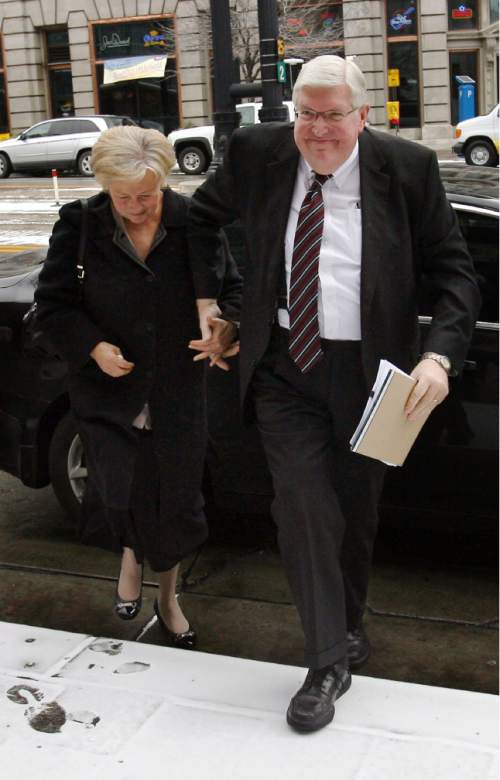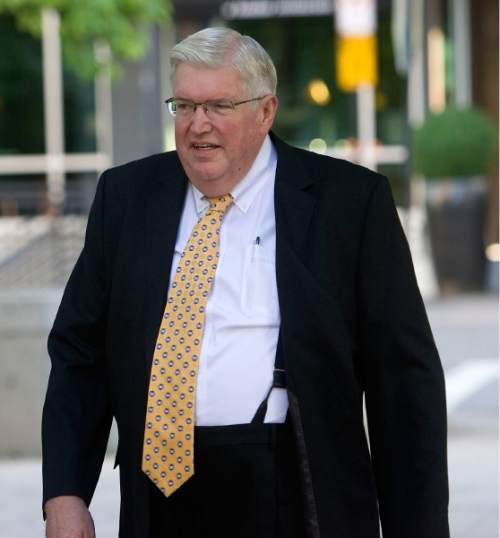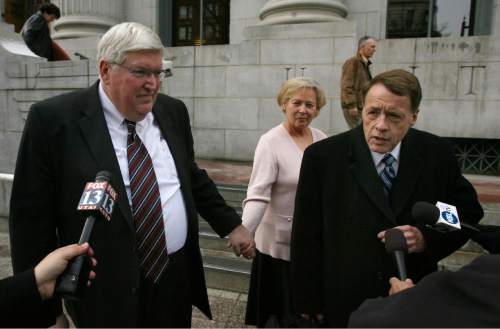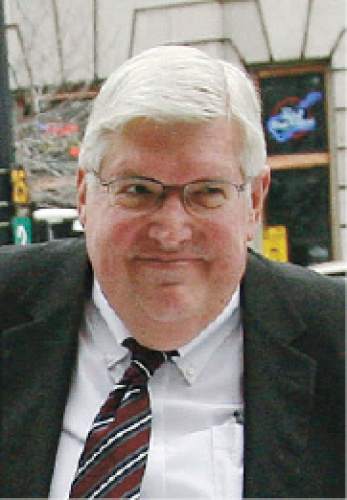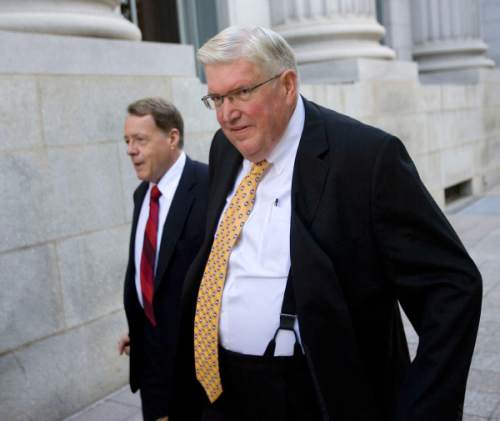This is an archived article that was published on sltrib.com in 2014, and information in the article may be outdated. It is provided only for personal research purposes and may not be reprinted.
Federal prosecutors are asking an appeals court to reinstate a 20-year prison sentence for Brigham City doctor Dewey MacKay who a jury convicted on 40 charges related to the illegal distribution of painkillers.
MacKay is now out of prison after U.S. District Judge Dee Benson resentenced him earlier this year to three years behind bars, down from the 20-year minimum mandatory sentence that originally was imposed.
Benson ruled that a Supreme Court decision handed down after MacKay's conviction meant that drugs such as oxycodone and hydrocodone like MacKay prescribed must specifically have caused a death for a mandatory sentence to be enacted.
Prosecution experts testified at MacKay's 2011 trial that the death of patient David Wirick likely came from a combination of drugs, while the defense asserted that pneumonia could have killed him.
MacKay's official release date from prison was Dec. 9, but court papers say he had been on home confinement before that.
Federal prosecutors in a brief filed Friday argued that the 10th Circuit Court of Appeals already had affirmed the original sentence. In sending the case back to the District Court in Utah, justices had only asked Benson to specify what sentence was imposed on each charge and to explain the reasons for departing from guidelines, according to the brief filed with the 10th Circuit.
Prosecutors said the 10th Circuit's earlier ruling also had followed the standard the Supreme Court later adopted and, therefore, there was no legal reason for Benson to depart from the original sentence.
MacKay's attorney, Peter Stirba, said Friday that Benson already had considered the points raised in the appeal.
"The government's arguments were rejected by the trial court after extensive briefing and two separate oral arguments, [during] one of which the government counsel was given over two hours to try to convince the court of the correctness of its position," Stirba said in an email.
Evidence offered at MacKay's trial did not meet the standard set forth by the later Supreme Court decision, he said.
MacKay was indicted in 2010 on charges related to his prescription of more than 1.9 million hydrocodone pills and nearly 1.6 million oxycodone pills starting in 2005.
He was accused of pushing 80 to 120 patients through his office in an eight-hour workday, spending just minutes with each person.
Evidence showed that MacKay did not conduct physical exams or question patients to determine whether they were abusing or selling the drugs.


